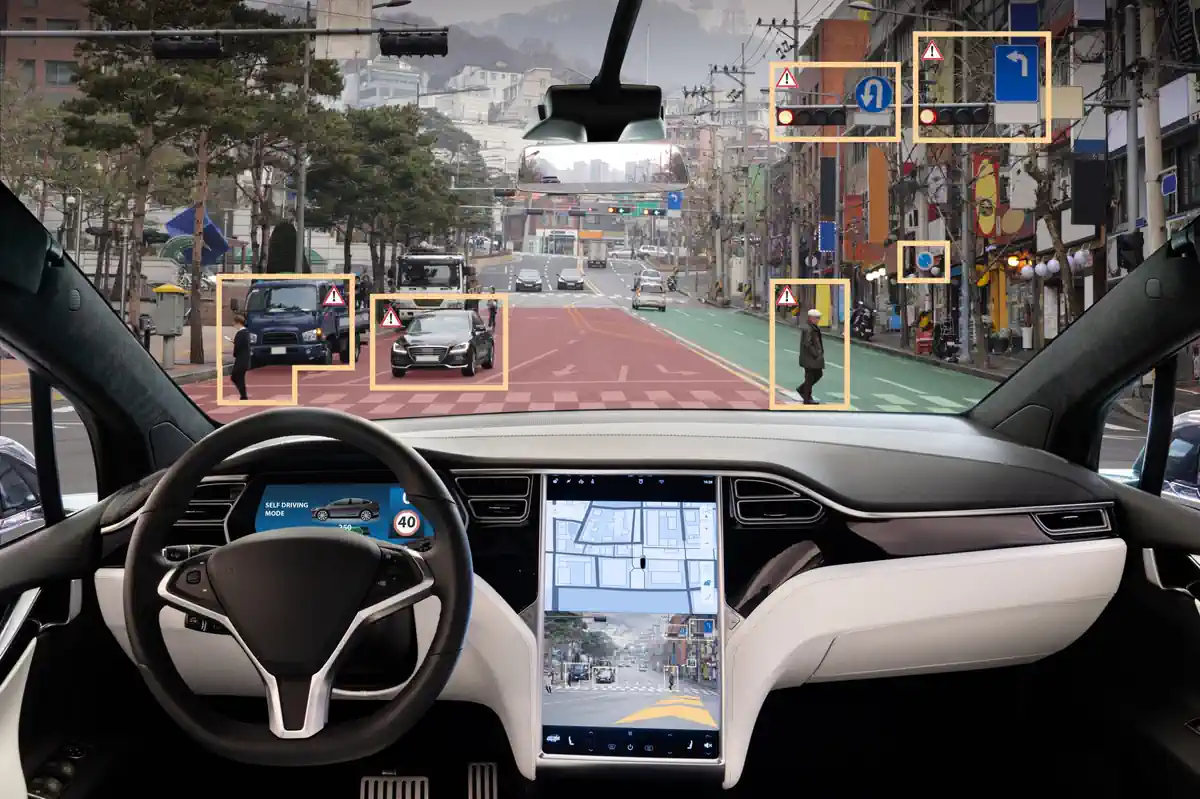A few months after Intel’s CEO announced plans to put AI into “everything,” we’re starting to get a clearer picture about where it will go first. Today, the company announced its AI-focused chip for the automotive sector or, as Intel describes it, “the first-generation AI-enhanced software-defined vehicle system-on-chip.” Intel also announced the acquisition of an energy management company and a new effort to standardize battery power for electric vehicles.
Intel has been locked in a race with Nvidia and AMD to corner the market in processors and other hardware needed to fuel the AI boom. Now, it’s shifting to AI PCs, arguing that AI is more secure when running on a personal computer as opposed to over the internet.
The companies also compete in the automotive sector, fueled by the belief that the car is the next great software platform. Intel’s new automotive chips are designed to enhance in-car experiences, such as navigation, voice assistants, and vehicle controls, said Jack Weast, vice president and general manager of Intel Automotive.
Intel’s plan for the future of the car is pretty complex. Image: Intel
The first company to sign up to install these chips in its vehicles is Zeekr, the EV subbrand of China’s Geely. (Geely is also the parent company of Volvo.) The first Zeekr vehicle featuring Intel’s AI hardware will roll out later this year.
“We are bringing the AI PC to the car,” Weast said in a briefing with reporters last week. He followed that up with a bit of a reality check, saying, “However, we can’t just put a PC in a car. We know that automakers need to be able to re-architect their vehicle, as I mentioned, to be software defined.”
The first company to sign up to install these chips in its vehicles is Zeekr
The company aims to introduce a “family” of systems-on-a-chip (SoCs) for these future software-defined vehicles (SDVs), with the first rolling out at the end of 2024. Intel wouldn’t name any other auto customers beyond Zeekr but said it was in active talks with a number of OEMs (original equipment manufacturers — sorry for all the acronyms).
The auto industry is facing a number of unique challenges as it tries to cram ever-more sophisticated computers into its cars in anticipation of the mass adoption of electric vehicles and the evolution of more advanced software. It’s a cliche to say that cars are becoming like smartphones on wheels, able to update their software through over-the-air updates and increasingly reliant on intricate superconductors to complete basic functions. But it’s also true.
But Weast said that the effort to build a vehicle defined by software has a ways to go still — mainly because Intel has yet to put its stamp on it. “Nobody’s really been doing software defined quite right yet,” he said. “We have a unique perspective and a unique set of capabilities that we think can help the industry transition their vehicles to be truly software defined.”
Intel says its SoCs are in 50 million cars on the road, powering infotainment displays and instrument clusters. Starting with Zeekr, the company will make its case to individual car companies that its AI-enhanced chips can help usher in a new era of software-defined vehicles.
“Nobody’s really been doing software defined quite right yet.”
Vehicles that have Intel’s AI chips will have better voice assistants, improved video conferencing capabilities, and video gaming options for rear-seat passengers, the company promises. Rather than fumble with multiple menus and submenus to turn certain features on, you could just tell your car to do it, Weast said. Improved safety features, like driver monitoring systems for hands-free driving, are another possibility. A car with Intel’s AI system could even “proactively enable” safety features that the driver has already turned off, Weast said.
“I think there’s a lot of opportunities for AI to enhance the vehicle experience and make tech a little less obtrusive,” he added, “and have it be more predictive and fit more seamlessly into the driving or passenger experience.”
Energy management and EV battery size are also playing a prominent role in Intel’s CES announcements today. The company is acquiring Silicon Mobility SAS, “a fabless automotive silicon and software company that designs, develops and deploys EV energy management SoCs.” The aim is to help EVs transition from first-generation batteries — heavy, expensive, mineral-rich — to something more lightweight and easier to manage.
Weast envisions EV batteries that are lighter in weight and that use fewer minerals but still deliver the same range — or better — as the current generation. Intel is working with SAE International to chair a new committee to develop a new standard for EV power management, the company said.
“Batteries are now the heaviest and most expensive elements of the vehicle,” Weast said. “Vehicles today frankly remind us of first genera

